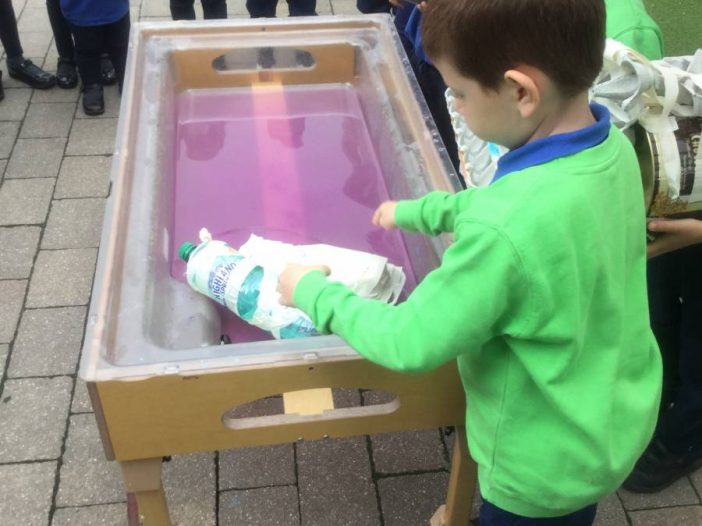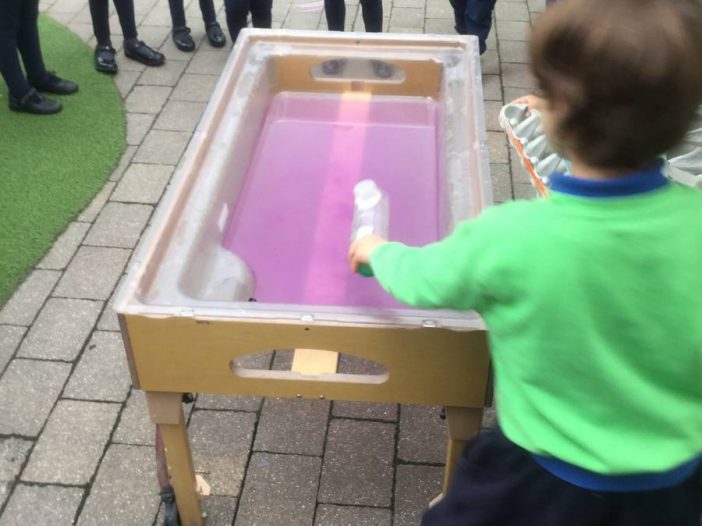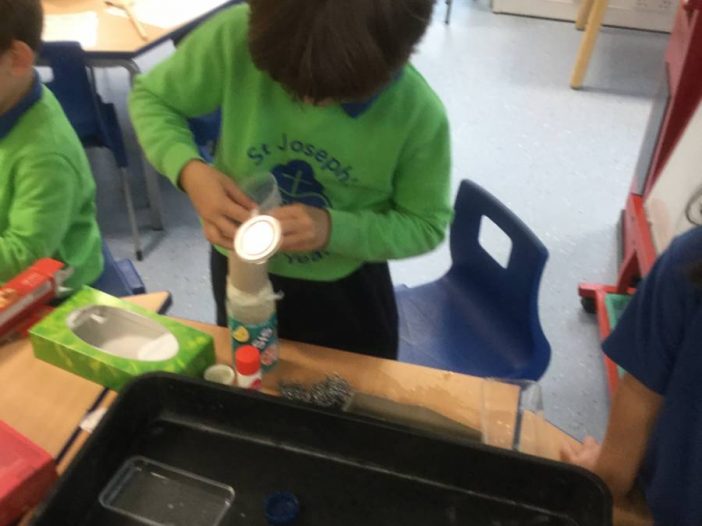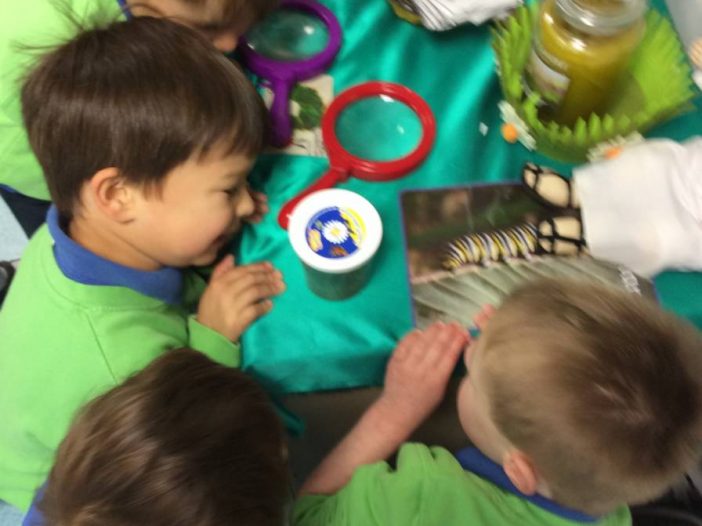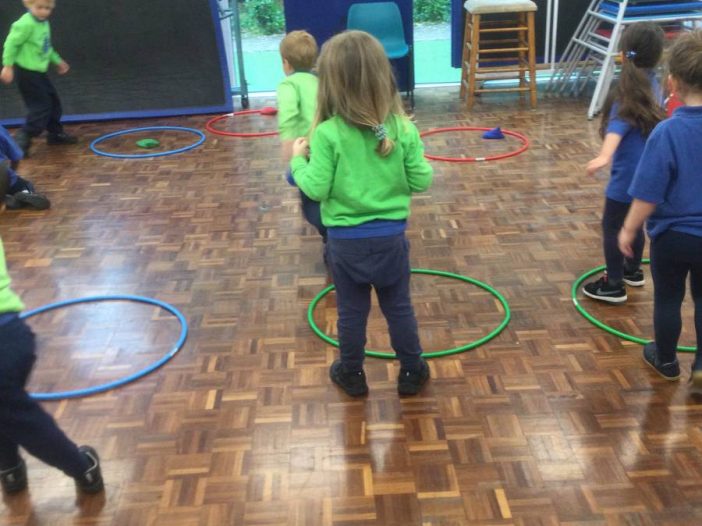The Early Years Foundation Stage
“Every child deserves the best possible start in life and the support that enables them to fulfil their potential. Children develop quickly in the early years and a child’s experiences between birth and age five have a major impact on their future life chances. A secure, safe and happy childhood is important in its own right. Good parenting and high quality early learning together provide the foundation children need to make the most of their abilities and talents as they grow up.”
(Statutory framework for the early years foundation stage, 2021)
In Early Years at St Joseph’s, children learn by playing, exploring, being active, and through creative and critical thinking, which takes place both indoors and outdoors. All our children have access to a stimulating and challenging environment that has a strong emphasis on learning through play and hands-on experiences. We provide our children with engaging and challenging experiences through a balance of adult-led activities and well-resourced provision,n which allows children to initiate their own activities.
See the links below for our Nursery and Reception long-term plans:
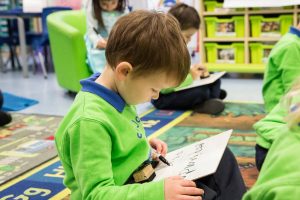
The Early Years Foundation Stage (EYFS) framework includes 7 areas of learning and development that are equally important and inter-connected. However, 3 areas known as the prime areas are seen as particularly important for igniting curiosity and enthusiasm for learning, and for building children’s capacity to learn, form relationships and thrive.
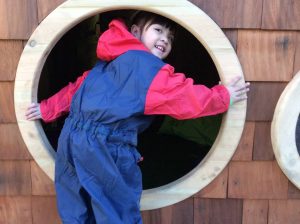
The prime areas are:
- Communication and language
- Physical development
- Personal, social and emotional development
The prime areas are strengthened and applied through 4 specific areas:
- Literacy
- Mathematics
- Understanding the world
- Expressive arts and design
Please watch our Open Morning video to find out more:
Weaving throughout the EYFS curriculum at St Joseph’s are three Characteristics of Effective Teaching and Learning:
- Playing and exploring – children investigate and experience things, and ‘have a go’
- Active learning – children concentrate and keep on trying if they encounter difficulties, and enjoy achievements
- Creating and thinking critically – children have and develop their own ideas, make links between ideas, and develop strategies for doing things
These elements underpin how we reflect on each child’s development and adjust our practice accordingly. Supporting children in their individual learning behaviour and observing the context of children’s play is essential.
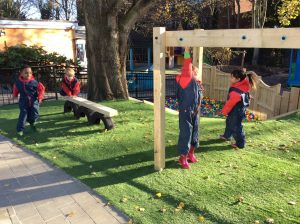
We recognise that children learn and develop well when there is a strong partnership between staff and parents and/or carers. Here are some of the ways you can support your child’s learning and development at home:
- Read together daily
- Encourage your child to be independent when dressing/undressing
- Make time after school to listen to them telling you about what they have been doing
- Establish a good routine
- Have lots of paper and writing implements readily available so that they can practice drawing and writing whenever they want to
- Sing songs and rhymes
- Sing number rhymes and count together
- Involve your child in baking, cooking and shopping
- Go on shape, colour or number hunts around your home or local area
- Visit the local park
- Allow your child to have daily opportunities for physical activity
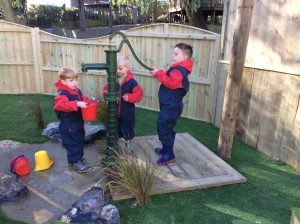
Useful links:
Intent:
At St Joseph’s our aim is to provide an ambitious curriculum for our children in the EYFS. We aim to create an environment that reflects the current needs of the pupils and constantly adapts to ensure it meets their ever-changing needs. We aim to ensure all children are able to flourish regardless of backgrounds, circumstances or needs. We intend to create strong relationships with pupils to ensure they know our school is a safe and secure place for them to learn and develop. We aim to work collaboratively with parents and carers to encourage independent, enthusiastic learners who thrive and reach their full potential. It is our intent that children who enter our EYFS begin their lifelong learning journey by developing physically, verbally, cognitively and emotionally whilst also embedding a positive attitude to school and a love of learning.
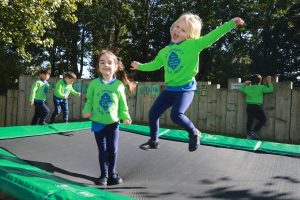
We recognise that children at St Joseph’s start their journey with us at a range of starting points. We ensure we take these starting points into consideration so that every child has access to a broad, balanced and differentiated curriculum which prepares them for now and for the future in terms of opportunities and experiences. Our curriculum considers children’s interests, individual needs and is grounded in the EYFS Framework to ensure child initiated and adult led activities support children’s learning and development and to achieve their next steps. We have high expectations for our children and encourage them to develop their perseverance and self-belief. We encourage positive learning behaviours through our Star of the Week assemblies which focus on a key aspect of the Characteristics of Effective Teaching and Learning.
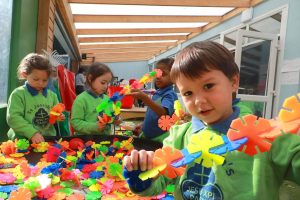
Our EYFS curriculum aims to enable our children to be:
- Inquisitive about the world around them
- Confident to learn new skills
- Resilient when faced with a challenge
- Effective communicators
- Caring individuals
- Proud of themselves and their achievements
- Regulate their feelings and develop a sense of wellbeing
Implementation:
Through our curriculum offering we provide opportunities to extend the cultural capital of our children by firstly knowing our children and their families. We place great importance on using a wide vocabulary in our conversations with children, visiting places where children can find out about and explore the world around them, using interesting and open-ended resources and utilising outside providers.
The learning environment allows pupils to access the curriculum in a safe and supported manner. All staff have high expectations of behaviour, which results in pupils who settle very quickly to their work, show kindness towards one another and engage thoroughly in the activities that are planned for them. Pupils are happy, curious, concentrate well and demonstrate independent and safe learning behaviours as a result of the clear structures and adult guidance embedded in daily practice. Pupils are taught the important message of a healthy body, health mind and how to keep themselves safe.
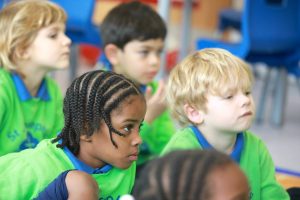
Children in EYFS learn by playing and exploring, being active and thinking critically and creatively and, for our children, this takes place both indoors and in our outdoor area. Our outdoor area is open all year round in all but the most challenging weather conditions. It offers a range of engaging, challenging and inviting opportunities for our children. Children make their own decisions about where they learn best and our skilled practitioners ensure that there are opportunities for all areas of learning both inside and outside.
The EYFS team interact and engage with the children to scaffold, challenge, model and extend their learning. They know when to intervene and when to allow step back and observe. Children’s ‘WOW’ moments are recorded in their special book or on the Tapestry online system. Parents are able to access Tapestry and during our weekly stay and play sessions, can also view and contribute to their child’s special book. Parents are encouraged to use Tapestry to record the milestones children make at home during the year. Parents are informed of their child’s progress and next steps during consultations and reports.
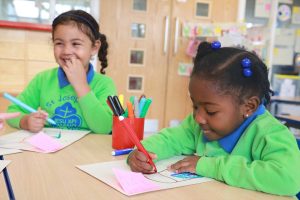
We have an emphasis on early reading, which begins with communication and language in the EYFS. Pupils are given opportunities to use language for communication and thinking, they are supported to develop good listening and attention skills, to interact with and respond to others in a variety of ways and to use speech in a clear and controlled manner. In Nursery, we develop communication, especially of our EAL pupils, through singing nursery rhymes, steady beat activities, modelling, recasting and high quality adult interactions. Children in our EYFS have a strong foundation in phonics because in Nursery we focus on Phase 1 in order that children can develop a good sound awareness before being introduced to Phase 2. We know that children must have opportunities to speak, listen, talk about language and be able to symbolise before introducing letter sounds. In Reception, as our pupils come from a range of settings, we embed Phase 1 when children are settling before promptly moving on to Phase 2. We use the phonics sessions to also develop children’s expertise in handwriting. We complete the Statutory Baseline as well as our own teacher baseline so that we know the strengths of our children. As a result of the robust assessment of phonics, pupils who need extra support to develop their phonic knowledge are identified and targeted for intervention.
We teach reading well in the EYFS by providing opportunities for shared reading, modelled reading, dialogic book talk and reading for pleasure. We read to pupils to expose them to vocabulary and develop their language acquisition. Our resources match our curriculum intention as we use high quality texts to develop the skills children need to do well in future learning. Our reading scheme supports the teaching of phonics as they match the pupils’ knowledge. We have a fantastically resourced school library with a range of quality fiction and non-fiction texts for children to read at home and at school. An emphasis is placed on reading for pleasure as well as reading to develop and practise phonic skills. We invite parents into classroom for reading sessions and offer workshops covering Reading and Phonics. Our curriculum is language rich. We have opportunities for reading and writing in all areas of our provision and promote speaking and listening through Helicopter Story sessions and areas such as our ‘Wonder Box’ which encourages children to talk about what they see.
The teaching and learning of mathematics in our EYFS takes place both indoors and outdoors through a wide range of practical and “hands on” activities. Staff use their knowledge and expertise to plan for a high quality learning environment which provides children with lots of opportunities to explore different aspects of mathematics and learn new concepts.
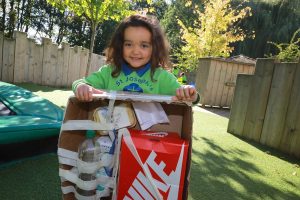
We provide effective and focused intervention for those children who are finding learning challenging and are not on track to meet expectations at the end of the school year. Interventions are inclusive and we work with parents to ensure the children have every chance to succeed.
We are proactive in our approach towards supporting home learning to ensure a consistent approach between home and school and to encourage high quality parent/child interactions. We use a range of strategies such as offering personalised advice and guidance to parents on an ad hoc basis e.g. toilet training, inviting parents in for workshops and stay and play/read sessions and encouraging reading at home by ensuring every child has the opportunity to borrow high quality texts from our school library on a weekly basis.
We use Tapestry to share WOW moments with parents. This means that parents can engage with children regularly about their learning and can contribute to the knowledge we have of the child in school. Parents are active on Tapestry and will respond to WOW moments observed by staff.
Impact:
The impact of the EYFS curriculum is reflected in having well rounded, happy and confident children transitioning into Year 1. Effective communication and collaboration ensure the children leave the EYFS with a solid foundation of learning of which to build upon.
As a team, we carry out regular internal moderation sessions and also ensure that staff attend external meetings and training to ensure that we are confident with our judgements and that these judgements are consistent with a range of other settings. Assessment starts with careful observations which are then used to inform planning. Learning and teaching is thus effective when children feel a sense of belonging, curiosity and competence.
By monitoring assessment procedures regularly, we can effectively demonstrate what learning is taking place and how each child is progressing in all seven areas of the EYFS curriculum.
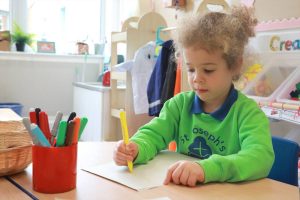

![IMG_1284[1]](https://st-josephs.islington.sch.uk/wp-content/uploads/2021/09/IMG_12841-702x526.jpg)
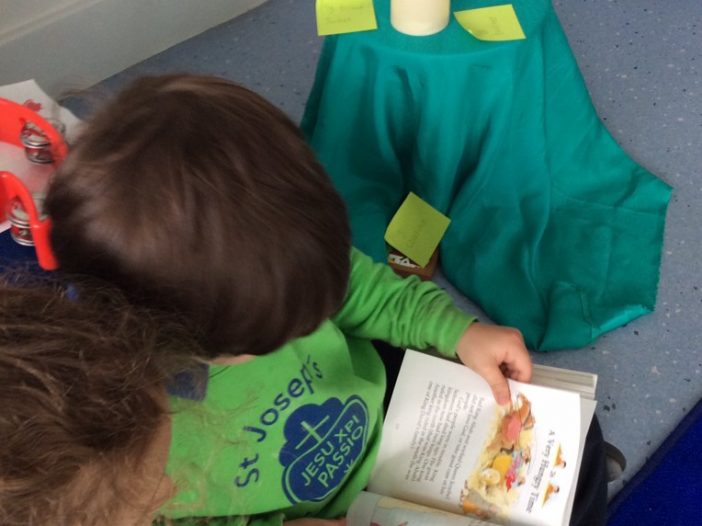
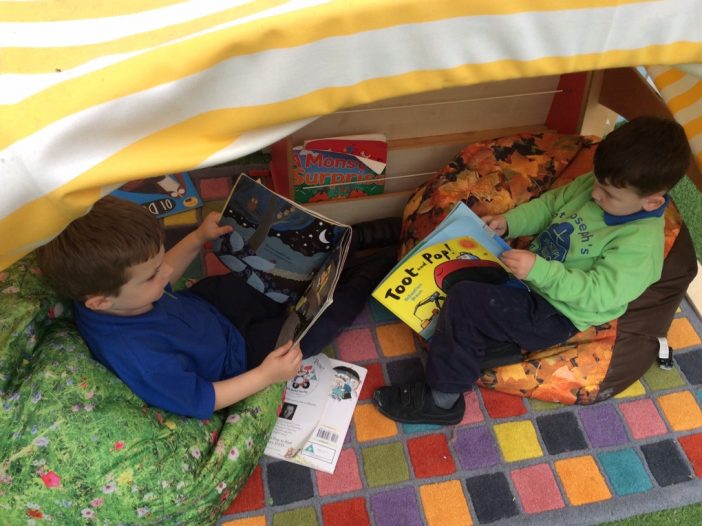
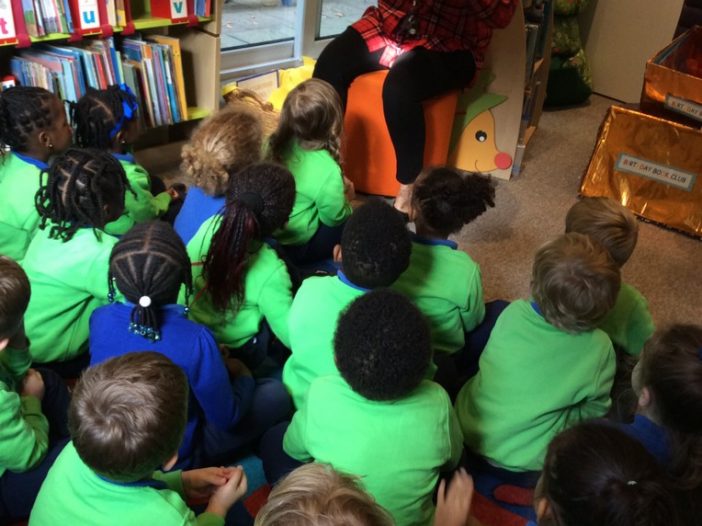
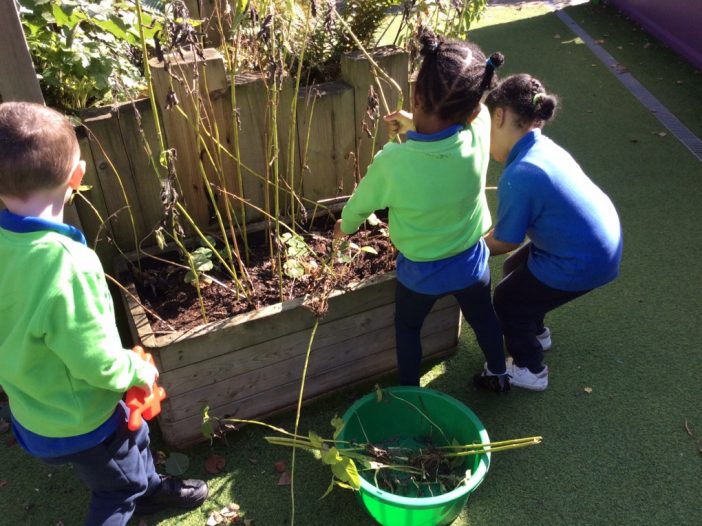
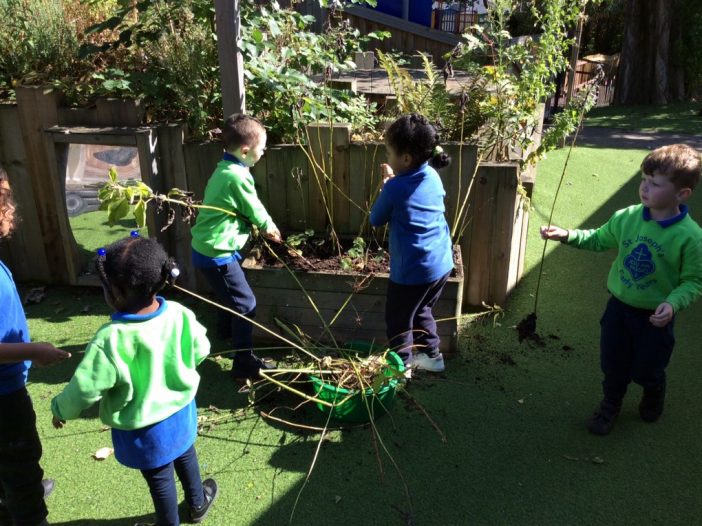
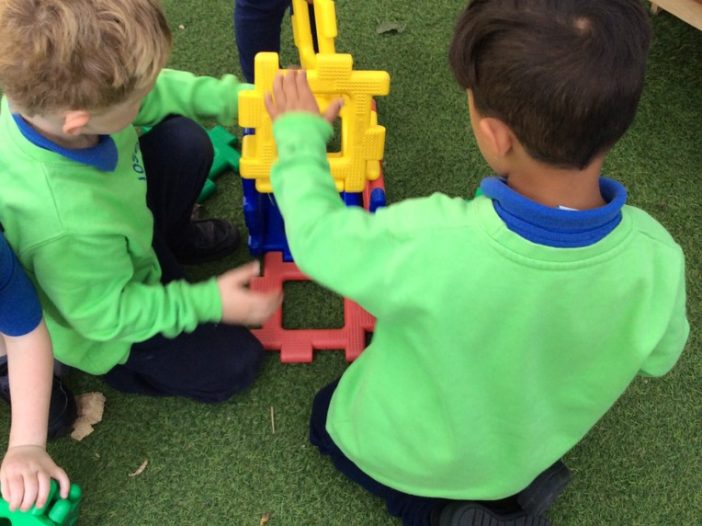
![IMG_E1167[1]](https://st-josephs.islington.sch.uk/wp-content/uploads/2021/09/IMG_E11671-702x526.jpg)
![IMG_1166[1]](https://st-josephs.islington.sch.uk/wp-content/uploads/2021/09/IMG_11661-702x526.jpg)
